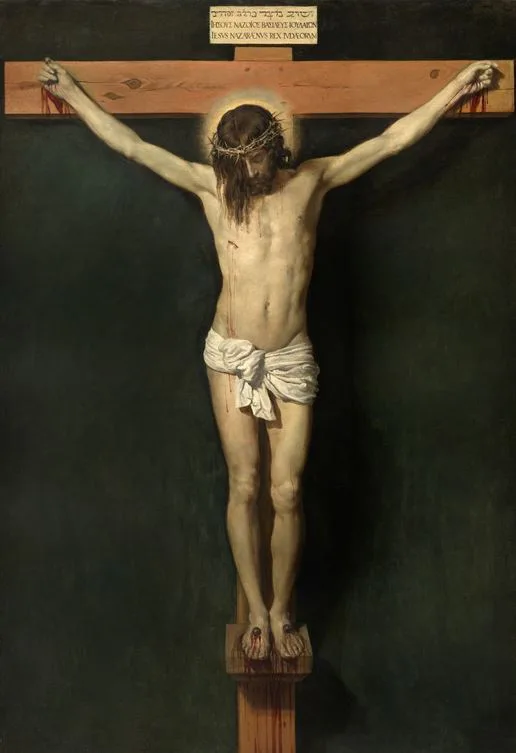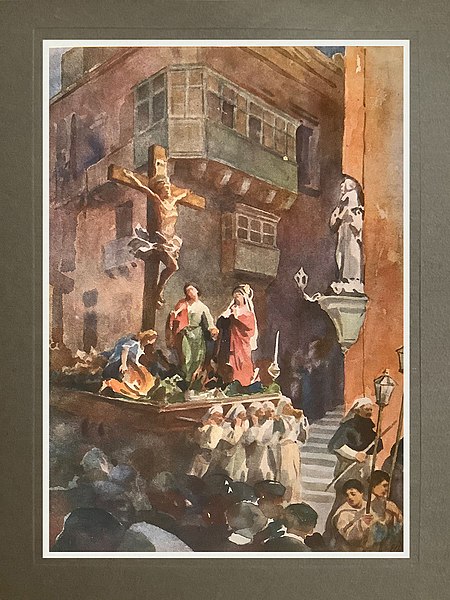Good Friday is a significant religious holiday observed by Christians worldwide, commemorating the crucifixion of Jesus Christ.
Falling on the Friday before Easter Sunday, it is a day of solemnity, reflection, and religious observance.
This occasion is marked by church services, fasting, and a somber atmosphere, emphasizing the profound sacrifice Christians believe Jesus made for humanity’s redemption.
In this article, we will delve deeper into the history, significance, customs, and observances associated with Good Friday.
Good Friday Facts
1. Good Friday commemorates the crucifixion of Jesus Christ
Good Friday is a Christian religious holiday that is observed to commemorate and remember the crucifixion of Jesus Christ, who is believed to be the Son of God.
According to Christian theology, Jesus was arrested, tried, and subsequently sentenced to death by crucifixion by the Roman authorities in Jerusalem.
Also Read: Facts About the Ascension of Jesus
His crucifixion is considered a pivotal event in Christian faith and theology because it is believed to be the means by which Jesus atoned for the sins of humanity, offering salvation to those who believe in Him.
Good Friday is a solemn day of reflection and remembrance of this significant event.

2. It falls on the Friday before Easter Sunday
Good Friday does not have a fixed date on the calendar; it is a moveable feast. It typically falls on the Friday immediately preceding Easter Sunday.
Easter Sunday, in turn, is determined as the first Sunday following the first full moon after the vernal equinox, which means that the date of Good Friday can vary from year to year but generally falls in March or April.
Also Read: Timeline of Good Friday
The close association of Good Friday with Easter Sunday is significant because it symbolizes the transition from Jesus’ crucifixion to His resurrection, which is celebrated on Easter Sunday.
3. The cross is the primary symbol of Good Friday
The cross, particularly the Latin cross (a vertical beam intersected by a shorter horizontal beam), is the most recognizable and prominent symbol associated with Good Friday. This symbol represents the instrument of Jesus’ crucifixion.
For Christians, the cross is a powerful and central symbol of their faith because it signifies Jesus’ sacrificial death and the promise of salvation.
Many Christian churches and individuals prominently display crosses on Good Friday, and they are often central to the Good Friday church services and religious rituals, such as the veneration of the cross, where the cross is honored as a symbol of Christ’s sacrifice.
4. Christians attend church services on this day
Good Friday is a day of significant religious observance, and Christians around the world attend church services to mark the occasion.
These services typically include readings from the Bible, particularly passages related to the crucifixion story, such as the Gospel accounts of Jesus’ trial, crucifixion, and death.
Hymns and songs with themes of reflection and sacrifice are sung, and sermons often focus on the theological significance of Jesus’ crucifixion and its implications for believers. Some churches also conduct special liturgical rituals and processions on Good Friday.

5. Fasting and abstinence are common observances
Fasting and abstinence are common practices on Good Friday. Many Christians choose to abstain from eating meat on this day as an act of penance and reflection.
Some may even fast by refraining from consuming food altogether or by eating a simple meal. These practices are intended to help Christians focus on the spiritual aspects of the day, to empathize with Jesus’ suffering, and to remember the significance of His sacrifice.
Fasting and abstinence vary in strictness among different Christian denominations and individuals.
6. The day is marked by solemnity and reflection
Good Friday is marked by a somber and reflective atmosphere in many Christian traditions. Churches may dim their lights, and the mood is one of mourning and solemnity.
This atmosphere is intended to convey the gravity of Jesus’ suffering and death. It serves as a stark contrast to the joy and celebration of Easter Sunday, which follows shortly after.
The somberness of Good Friday is a reminder of the tremendous sacrifice that Christians believe Jesus made for humanity’s redemption, and it encourages believers to contemplate the depth of their faith and the significance of Jesus’ sacrifice.
7. Celebratory activities are typically avoided
Good Friday is a day of solemn observance, and it is customary in many Christian traditions to avoid celebratory activities on this day. This includes refraining from parties, festive gatherings, and other forms of entertainment.
The somber and reflective nature of Good Friday is meant to create an atmosphere of reverence and respect for the significance of Jesus’ crucifixion.
This abstention from celebratory activities underscores the seriousness of the occasion and serves as a reminder of the sacrifice Christians believe Jesus made for humanity’s salvation.

8. In some countries, it is a public holiday
In several countries with a significant Christian population, Good Friday is recognized as a public holiday. This means that businesses, schools, and government offices may be closed for the day.
The designation of Good Friday as a public holiday allows people the opportunity to attend church services and observe the day in a meaningful way. In some countries, the holiday extends to the entire Easter weekend, providing an extended period for religious and family gatherings.
9. Customs and traditions vary among denominations
While Good Friday is a universal observance within Christianity, specific customs and traditions associated with the day can vary among denominations and cultures.
Different Christian denominations may have unique liturgical practices, such as the Stations of the Cross, where participants walk through a series of images or sculptures depicting key events in Jesus’ journey to the crucifixion.
Cultural variations may also influence how Good Friday is observed, with some regions holding special processions, reenactments, or other local customs that add depth to the religious observance.
10. Good Friday is a significant religious holiday in Christianity
Good Friday is considered one of the most significant religious holidays in Christianity. It is a day that underscores the central message of the Christian faith—the sacrifice of Jesus Christ for the forgiveness of sins and the promise of salvation.
While the day is marked by solemnity and reflection, it is also a time of hope and gratitude for believers, as it leads to the celebration of Jesus’ resurrection on Easter Sunday. Good Friday serves as a reminder of the profound love and sacrifice at the core of Christian belief and provides an opportunity for Christians to deepen their faith and connection to God.
